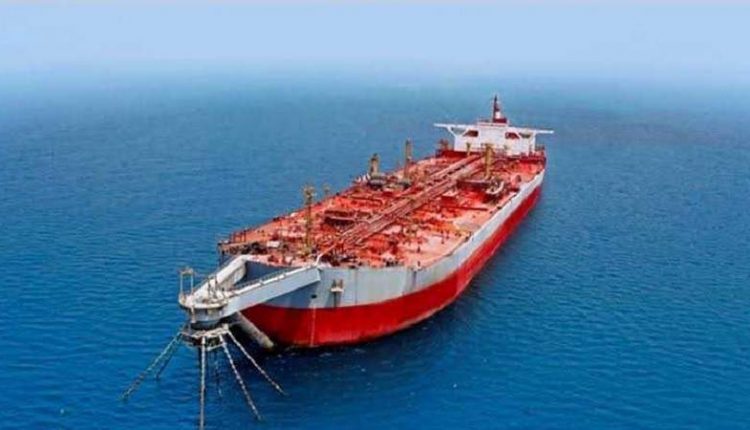New Agreement with UN to Find Reservoir Equivalent to Safer Tanker: Official
The head of the implementation committee of the maintenance agreement for the Safer ship, Zaid Al-Washli, revealed an agreement with the United Nations to find an equivalent ship to unload the crude oil in the Safer reservoir.
Al-Washli stressed that the United Nations was committed to making the alternative tank capable of being exported, as was the floating ship Safer, indicating that Sana’a deals seriously with the Safer issue, and separates it from the political and military situation as a humanitarian issue.
Al-Washli expressed his hope that there would be seriousness in the Safer issue in order to avoid any catastrophe, holding the US-Saudi aggression and the United Nations responsible for the delay, according to a statement to Almasirah TV.
Al-Washli indicated that Sana’a is making efforts to facilitate the mission of the United Nations, and it must move seriously.
This comes after the United Nations announced, Thursday, that it will begin early next year the process of unloading crude oil from the floating reservoir Safer, off the coast of Hodeidah.
And the Resident Representative and Humanitarian Coordinator of the United Nations in Yemen, David Gresley, stated that field work to unload the oil on the Safer tanker will begin in the first quarter of 2023, and will take four months, according to what is prepared in the United Nations plan, which costs more than $100 million. .
He stated that the United Nations plan, in its first emergency phase, aims to transfer 1.1 million barrels of crude oil in the tank, which was made 45 years ago, to another safe ship temporarily.
Over the past two decades, the marine environment in Yemen has been exposed to many environmental threats and disasters caused by oil and fuel storage tanks, through the spillage and leakage of thousands of tons of oil and mazut into Yemeni territorial waters. This led to the pollution of large areas of beaches with oil spots and black foam, and the death of large quantities of fish and marine life.
With the continuation of the US-Saudi aggression against Yemen for eight years, the beaches and seas of Yemen are exposed to more dangerous threats, which no longer enjoy any government sovereignty.
More than once, local media reported pictures documenting the unprecedented proliferation of dangerous oil and non-oil vehicles, in the complete absence of government authorities in the occupied areas.
The disaster of the FSO Safer will not only affect marine life in the Red Sea, but will have a significant impact on the global economy, a New York-based media company reported.

